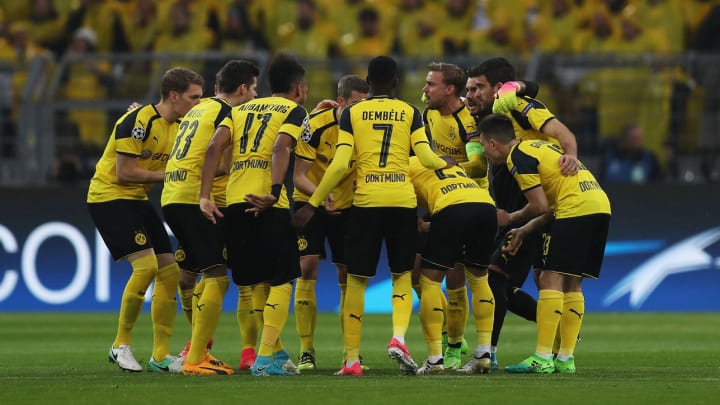Dortmund copes with reality, aftermath of bus attack while seeking closure

DORTMUND, Germany — When I texted an American friend last weekend that I was about to leave for a Europe trip, a response came back that threw me a little bit.
“Stay safe,” he wrote.
I couldn’t help but wonder: Is that where we are? That “stay safe” is the first thing some of us think of saying when someone goes to Europe?
What I didn’t tell my friend that I was going on a reporting trip to Dortmund, where an attacker set off three explosive devices near the Borussia Dortmund team bus on its way to a Champions League game two weeks ago, injuring defender Marc Bartra seriously enough that he needed surgery to repair a broken wrist.
Ultimately, the casualties could have been far worse. This was a terror attack on one of the world’s top soccer teams. UEFA officials and too many in the sports media failed to grasp the trauma endured by all the Dortmund players and staff on the bus, including the U.S.’s Christian Pulisic. Incredibly, UEFA decided to stage Dortmund’s Champions League game against Monaco the very next day, the definition of a tone-deaf response.
Insider Notes: Pulisic's father reacts to attack on Borussia Dortmund's bus
“It was a hard decision to play in the Champions League match the next day, especially for the players,” Dortmund sporting director Michael Zorc told SI.com in an interview on Tuesday. “But from our side there was no alternative. You could say, ‘O.K., we don’t play.’ But then you will be out of the competition [with a forfeit]. They would kick you out of the tournament.”
“Then you have this social responsibility that you face at this time,” Zorc continued. “Everybody saw it was a terror attack. To stand up against this and to play and not give in, you give a message: We play football. But it was really difficult.”
Exactly how difficult became clear to everyone when Dortmund midfielder Nuri Sahin gave a remarkably candid and human interview to Jan Aage Fjortoft after the game.
Nuri Sahin (@nurisahin): – It's hard to find the right words.@JanAageFjortoft pic.twitter.com/KTMPF3PTNI
— Viaplay Fotball (@ViaplayFotball) April 12, 2017
For his part, Zorc said it was a relief to everyone last week when police arrested a German-Russian man for the attack, revealing that he was being accused of shorting stock in Borussia Dortmund and then planting the explosive devices in an attempt to harm the team and send the stock spiraling downward to his own financial advantage. You would have to be next-level deranged to do something like that, of course, but Zorc said there was comfort to be found “to know who did it, why he did it and how he did this.”
That’s not to say everything feels “business as usual” here these days. It doesn’t. And once the punishing schedule of playing once every three days ends next month, it’s possible (perhaps even likely) that only then will the full extent of what Dortmund’s team has endured be fully realized.
Ruthless Monaco, defiant Juventus round out Champions League semifinals
A psychologist hired by the team has met with entire group, as well as individually with any player who has requested it.
“We try to give the team assistance: medical assistance and psychological assistance,” Zorc said. “That has been used by some of the players individually.”
When arriving here in Dortmund, I chose to stay at L’Arivee Hotel and Spa, where the Dortmund team had been lodging the night before their Champions League home game—and where the attack took place near the front entrance as the bus departed. I figured it was a nice hotel that could use some business, and that turned out to be the case.
It’s located in a bucolic setting on the city’s edge. Everyone was friendly there, albeit a bit muted in their general tone. It was kind of strange walking around the thoroughly normal grounds and seeing images in real life that were plastered on global televisions just two weeks ago.
I woke up Monday morning and looked out my window toward a public walking path near an area of trees and vegetation. I blinked twice and noticed one, two, three men in orange helmets walking through the overgrowth carrying what looked like metal detectors of some sort. My immediate assumption: "Holy cow, they’re looking for more devices."
Only a few seconds later did I see more clearly that they were simply weed-whacking the area.
Fear comes easily to the human brain these days—and that’s for many of us who haven’t experienced anything that would be called traumatic. For the players and staff of Dortmund who were on that bus, the players and staff who were targets of an attack designed to kill them, you can only hope that they and their families are given time to continue processing what happened.
Athletes aren’t robots.

A leading soccer journalist and best-selling author, Grant Wahl has been with SI since 1996 and has penned more than three dozen cover stories.